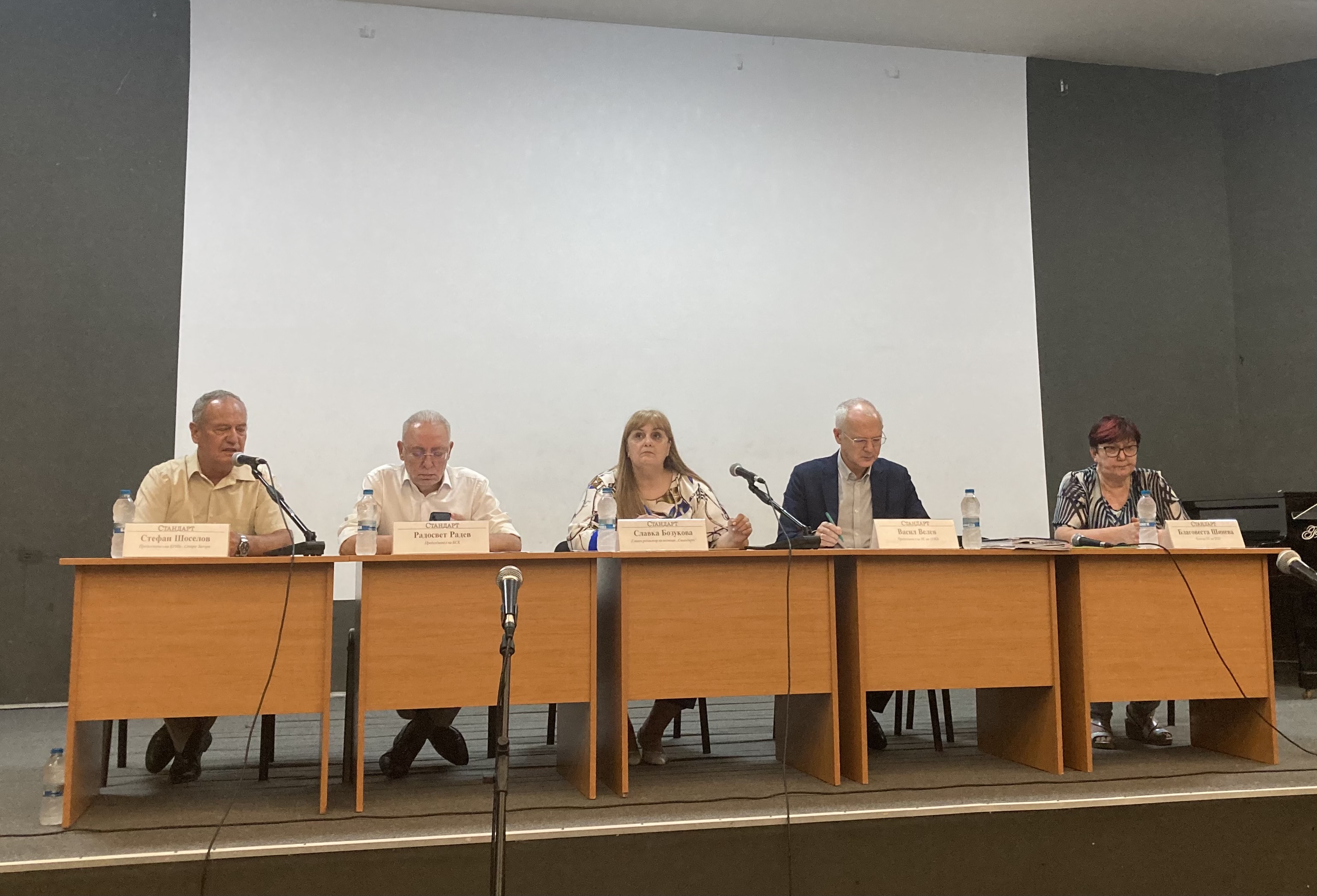"Stara Zagora has a historic chance to be the region of Bulgaria in which the new economy, the economy of the XXI and XXII century will happen, but if it misses this chance, it risks becoming the back wheel of Europe's economy." Radosvet Radev, Chairman of BIA, stated during the economic debate on the future of Stara Zagora, "Where to after the crisis?", organized by the newspaper "Standard" and supported by the four business organizations members of AOBR - BICA, BIA, CEIB and BCCI.
The general campaign "Where to after the crisis?" aims to create space for discussions between the business, government, academia and the media to outline strategies for the development of individual regions and hear the views in the political programs of the candidates for MPs in the field.
For Stara Zagora, there are four critical areas for discussion: the Green Deal and Energy; Infrastructure projects; Education and Digitalization; Income and standard of living.
"By being elected MPs, you are not just representing the interests of Stara Zagora voters, but you are responsible with your actions for the future of our country. Therefore, it is crucial to know what your views and ambitions are for creating change and provoking development ", the Chairman of BIA added and continued that the evolution of the economy in Stara Zagora occurs administratively, imposed by the EU, and administrative decisions are critical and implemented by competent administrators.
There was a serious debate on the prospects for the educational system in the region, the need for retraining and the opportunities for retaining young people in the region. Currently, Stara Zagora has a lower share of the population aged 15-64 with higher education - only 20% for 2019 against 28% on average for the country. The statistics are no surprise, as the high share of workers with secondary and vocational education is typical for areas with an industrial focus. However, the inevitable future economic transformation of the district could also be directed towards a wider overlap of high technologies, where access to the most significant possible number of graduates, especially with a technical profile.
The political debate was superficial and included only three political forces - GERB, BSP and DPS. The presented political programs contained mostly findings and no concrete solutions.






